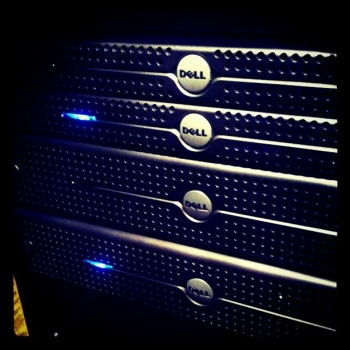Important Web Hosting Server Protection Actions Against Potential Threats

After you’ve finished a fresh base install of your OS and made a few slight modifications, it’s time to secure your server against all the threats. The server is a very important machine in any organization. This machine stores all the critical data pertaining to your business and also clients. The loss of data present on this machine can cause a huge setback to your business and also lead to loss of reputation. The only solution to keep such problems at bay and drive your company towards growth is by opting securing and hardening your server at the maximum possible level. It’s very important and critical task System Administrators have to do these days. Hacking and brute force attacks are on the rise and if you want to protect your web servers from all sorts of hacking attacks and other potential threats securing the server is must, and it’s very important to understand the facts regarding vulnerability on servers.
This small topic will discuss about what things you can do on your cPanel based servers and protecting it against all odds. These are some of the basic things that you can look out at your own without any expert system administration help.
1) Complex root/administrator password of your server:
Never use simple passwords like "12345" or "test" or any other dictionary word which are really easy to crack or guess. Make sure your password is longer than 10 characters and contain a random mixture of character as well as special symbols.
2) Enable Brute Force Protection to stop script kiddies from exploring the server password. Brute force is a simple but effective way to hack a system that does not have brute force protection. It involves the attacker using a computer program designed to run through millions of possible password combinations until it finds the one that matches the correct system password. So, it’s always recommended to enable this on your server.
3) Compile your Web server with latest mod_security. Now all of you might not know what mod_sec is all about. Basically mod_security is just like web application firewall which helps secure our sites against RFI, LFI, XSS, and SQL Injection etc. This directly helps your sites against malwares and virus being injected in your website.
4) Install a good Software Firewall like CSF and tweak settings. Make sure the score is good enough and suggestions given by the security analysis are applied properly.
5) Install antivirus with latest virus database, you can install ClamAV and integrate with your mail server which will help you to protect the server against worms and Trojans. You can install "MALDET" which will scan the server for malware and other vulnerabilities. Proper configuration of MALDET will also help to monitor the users on regular basis.
6) Securing the /tmp partition for noexec , Please note /tmp is the place where temporary files are meant to be created by CGI scripts, PHP scripts, server services, etc. So /tmp protection is about making it harder for hackers who use vulnerabilities in your users CGI/PHP scripts to upload files to your /tmp/ directory.
7) Secure your sysctl.conf to prevent from DDOS attacks, the TCP/IP stack from syn-flood attacks. Also configure it to prevent other various and similar network abuse.
8) Change your SSH port. By default SSH port is 22 and unfortunately its quite common for everyone to know about that, so it is always recommended that you change your SSH port.
9) Enable Shell Fork Bomb/Memory Hog Protection. Fork Bomb/Memory Hog protection will prevent users logged into a shell (SSH/Telnet) from using up all the resources on the server and causing a crash.
10) Disable unused services: It’s always recommended to disable unused services on the server for ex. Cups, NFS etc.
11) Optimize Apache, MySQL and PHP if you know what to do.
If you are technically enough skilled then you can proceed this much further with detail in depth security on your server, otherwise you can hire professional assistance for securing your server. There is no reason for you to leave your servers vulnerable to different kinds of security threats. It goes without saying that servers are of paramount and without them it will become very hard for you to run the business.
